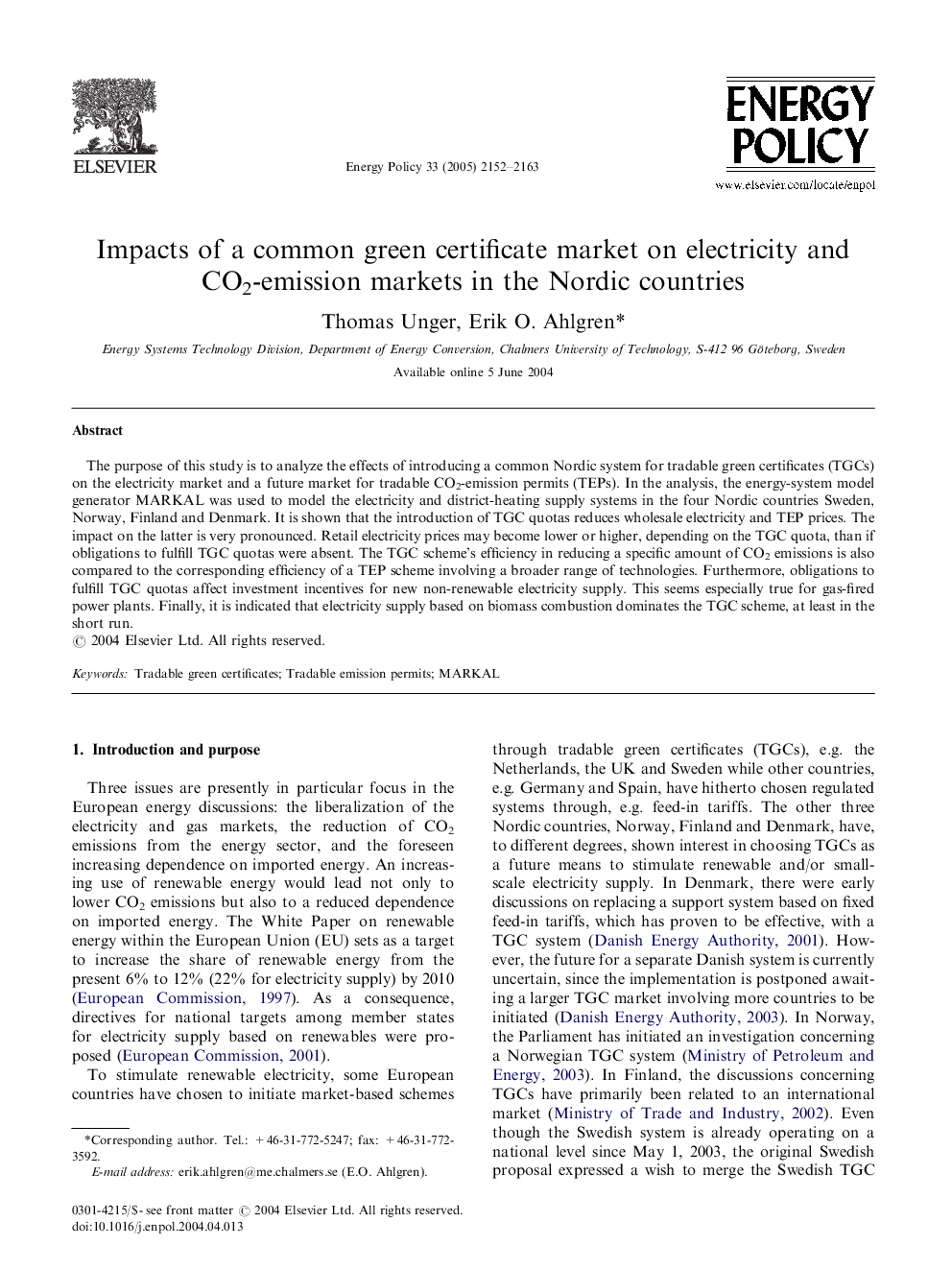| کد مقاله | کد نشریه | سال انتشار | مقاله انگلیسی | نسخه تمام متن |
|---|---|---|---|---|
| 997305 | 936366 | 2005 | 12 صفحه PDF | دانلود رایگان |

The purpose of this study is to analyze the effects of introducing a common Nordic system for tradable green certificates (TGCs) on the electricity market and a future market for tradable CO2-emission permits (TEPs). In the analysis, the energy-system model generator MARKAL was used to model the electricity and district-heating supply systems in the four Nordic countries Sweden, Norway, Finland and Denmark. It is shown that the introduction of TGC quotas reduces wholesale electricity and TEP prices. The impact on the latter is very pronounced. Retail electricity prices may become lower or higher, depending on the TGC quota, than if obligations to fulfill TGC quotas were absent. The TGC scheme's efficiency in reducing a specific amount of CO2 emissions is also compared to the corresponding efficiency of a TEP scheme involving a broader range of technologies. Furthermore, obligations to fulfill TGC quotas affect investment incentives for new non-renewable electricity supply. This seems especially true for gas-fired power plants. Finally, it is indicated that electricity supply based on biomass combustion dominates the TGC scheme, at least in the short run.
Journal: Energy Policy - Volume 33, Issue 16, November 2005, Pages 2152–2163